South Africa sits at the most-Southern tip of the African continent. The beauty of the internet is that I was able to connect with Michelle of Greedy Gourmet, from many miles apart!
Michelle grew up in South Africa but now lives in the United Kingdom. She sat down and answered so many of my burning questions about what life and food are like in South Africa. Keep reading to hear her answers!

What is your background with South Africa? What was it like growing up in the country?
I was born and raised in Pretoria, the capital of South Africa. As a child I took the country’s great weather for granted and only started appreciating it when I moved to the UK.
The thing that sticks out the most about primary school is how we were almost permanently barefoot. Shoes were only reserved for the rare cold day in winter!
Let’s just say that most of the teachers were “old school” who demanded respect and obedience, or else you had a “date” with the principal and his “lat” for some spanking. I stayed well out of trouble playing a lot of chess!

What was surprising to you about moving from South Africa to the UK? What did you miss?
The miserable weather, of course! Barbecues aren’t done as often or well in the UK. The daylight times vary dramatically as well because in South Africa there’s around an hour or two difference between winter and summer.
Back in 2004, when I moved to the UK, I missed dining out as well, because you get a lot more bang for your buck at restaurants.

What are interpersonal relationships like in South Africa? How does the community interact? What is family life like?
South Africa is a melting pot of cultures and each race has got its own approach to relationships. Before Mandela became president, the lines were drawn between all respective parties, but over time they blurred and the different groups started mingling more and more.
On a family and friends level, the Afrikaans community’s activities revolve around “braai” (barbecue). Men get their tongs out and women deal with accompaniments. If it’s a special occasion, there will be a “spitbraai”, which involves a whole lamb being cooked on the spit. The older generations will listen to “boeremusiek” and the younger ones will tune it to the latest hits. If enough booze is involved, a “sokkie” (dancing) might take place.
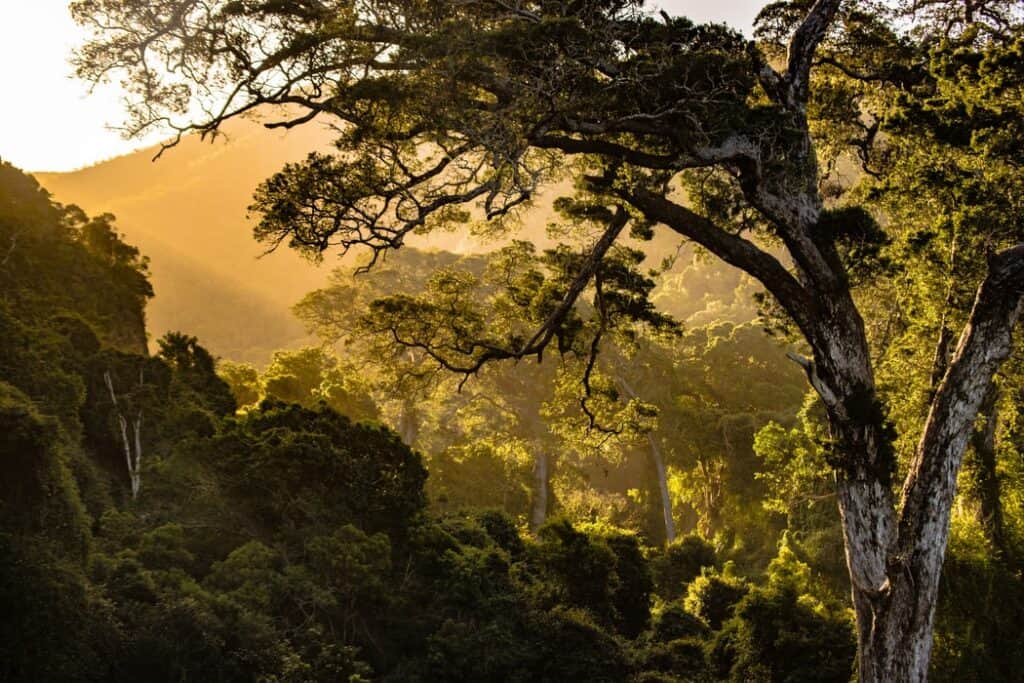
What is your favorite South African holiday or tradition? What food reminds you of that holiday?
If you lived inland, like I did, it would be a tradition to go on a beach holiday in the summer holidays in December. The destinations of choice were Cape Town and Durban. In Cape Town, the highlight for me was to visit Die Tuine.
We would arrive armed with a big bag of raw peanuts and feed the squirrels that were so tame from all the visitors’ feeding. There’s nothing quite like having tiny paws resting on your fingertips and watching the little critter literally stuffing its face until it almost bursts!
I always loved going to the food markets and admiring the huge amount of dried fruit and jams. Being at the coast, fish is ample and you should definitely order a seafood platter.
Durban, and surrounding areas, has glorious hot and tropical weather. Just about anything grows there and I have fond memories of the most beautiful lychees that we ate there. There is also a large Indian community residing there so if you’re looking for a proper curry, you should totally go there.
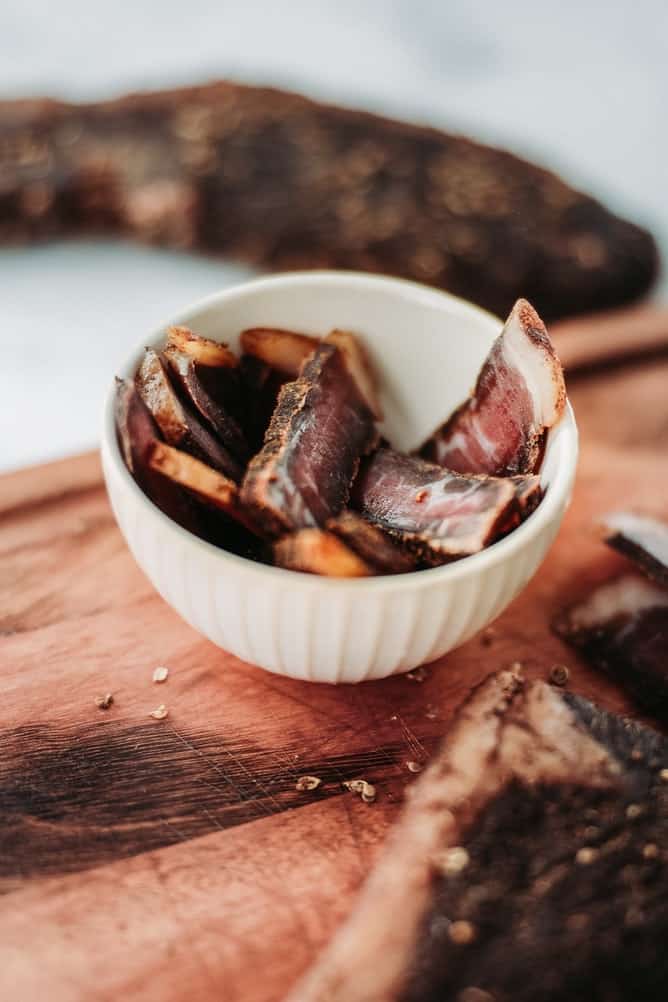
Tell me about the food in South Africa!
After a few meals you’ll definitely see a pattern forming. South Africans love their butternut squash, usually mashed with butter, cinnamon and sugar. Plus their spinach, which is finely chopped and served with cream and cheese. Cinnamon is widely used in baking.
South Africans love their barbecues and display great creativity in this regard, from lamb sosaties to boerewors and braaibroodjies. Pap en vleis in another popular item.
As an army of meat eaters, no animal is off the menu, so you can enjoy everything from ostrich, crocodile, shark to any bokkie that was shot in the wild. In some areas even mopane worms are on the menu!
What are your everyday South African foods? What types of things are common for breakfasts, dinners, snacks?
For breakfast, it’s “koffie en beskuit”. Lunch can be anything from a salad to a sandwich. Souttert is usually bought at a “tuisnywerheid” (a little shop where housewives sell their baked goods) and makes a great lunch.
Bobotie is a very popular dish comprising beef mince with raisins cooked in spices, which is then topped with an egg custard and slivered almonds, and finished off in the oven. Denningvleis is a lamb stew with tamarind and spices, which is rather unique – usually enjoyed around wintertime.
Oxtail is loved by all, also enjoyed in winter. For dessert, you simply must try melktert and Don Pedro.
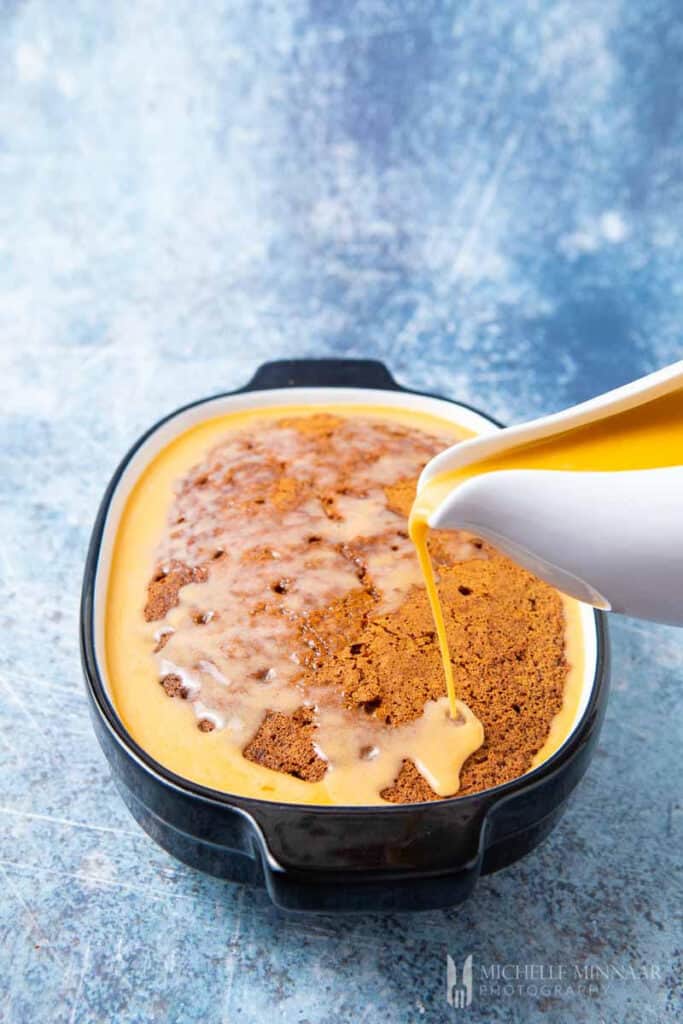
Is there anything eaten in South Africa that’s not eaten anywhere else in the world? Anything surprising?
One funny tradition South Africans have is when it rains, everyone eats pancakes. It doesn’t rain that often in the Gauteng region but if it does, everyone gets their pans out and makes pannekoek. Of course, it’s served with cinnamon and sugar!
Mopane worms have already been mentioned above.
Potjiekos is food that’s been cooked in a lidded cast iron pot over open fire. It tends to be stews that need a long cooking time.
We also have a liqueur that is steadily growing in popularity in overseas markets. It’s called Amarula, which is made from the fruit of the marula tree. It’s like Bailey’s Irish Cream, but better! Usually it’s used in dessert and this Amarula cheesecake is simply magical.
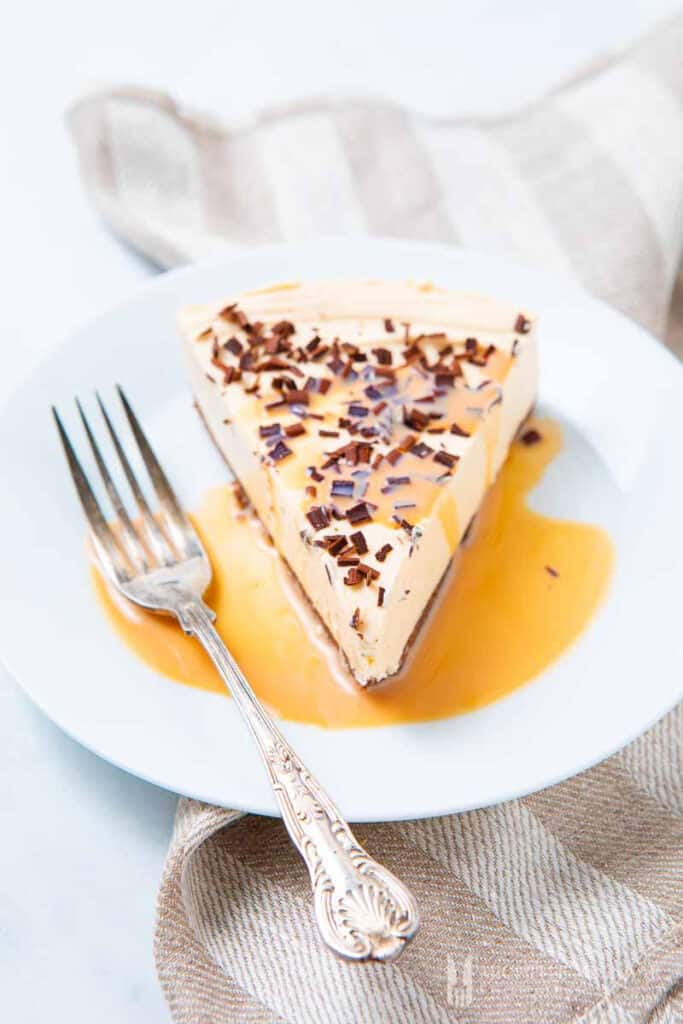
What’s your very favorite recipe from South Africa? What is your least favorite food that is traditionally South African?
Malva Pudding! It’s a sponge-based dessert which is poked after baking and soaked in a sweet syrup. Everyone loves it!
I might get shot for this, but I’m not keen on vetkoek or koeksisters. Both are deep fried items, which I’m simply not keen on.
Are there any ingredients that you love that just aren’t the same unless you’re in South Africa?
Biltong and droewors. I’ve bought the stuff in the UK but it simply doesn’t taste the same as the real deal. The dried meat products originated out of necessity in the olden days when fridges didn’t exist. Inland areas, such as Gauteng, have particularly arid conditions which simply can’t be replicated in the UK.
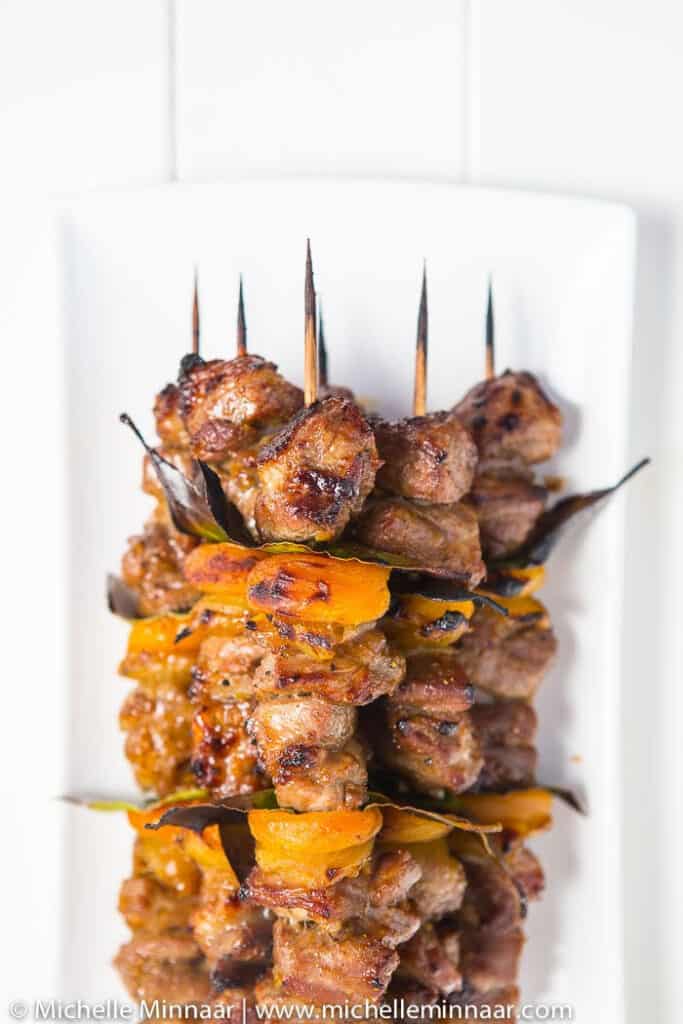
Tell me about your food blog! Why you started it, what it features, etc.
Greedy Gourmet was established in 2007 when I arrived in the UK and couldn’t afford to eat out but couldn’t cook! It was a way for me to document my journey of learning how to cook and it never stopped!
As a South African, I’ve been exposed to many different cultural influences and am very receptive to different cuisines, which is why I’m always exploring new and interesting dishes. Let’s just say, if you’re bored of the typical family dishes such as spaghetti bolognese, Greedy Gourmet will give you plenty of inspiration!
If you liked this post, check out these other posts on my site that you might like:


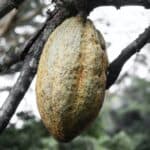



Kim says
I understand that any set of responses would be based on that person’s particular experience and background. I get that. I would just like to say I am South African and these responses to me are narrow and present a rather one dimensional view, especially for an article entitled South African Food: Everything you need to know. You just have to read all the Afrikaans references and wonder. It’s 2020 when this was written not the ‘wonder years’ of the 1980s.
Perhaps next time try to find a blogger or someone on the ground in the country (not someone who up and left to the UK more than a decade prior), who is able to present a wider view of the real South Africa. You could even interview a few people with diverse backgrounds and mesh them together for your piece or rather rename the blog/article.
SA is made up of a population of 75% black/African people and roughly 13% white. My estimates could be wrong and outdated, it was just to give you an idea of the splits in the country.
If wanting to understand and present the true SA food culture, perhaps do some research and interview someone as well from the demographic that makes up the majority of the country.
SA is a melting pot after all, not a one sided affair. There are various African dishes and favourites that get absolutely no airtime here except for mopani worms which are a delicacy and not even standard fare. Eating pannekoek when it rains… I’d be interested in a poll to see if that’s really a thing, there are so many things on SA plates that could surprise someone.
I assure you all, the above is a not a representation of South African food or culture.
The Foreign Fork says
Hi Kim,
Thank you so much for your thoughtful response. You are right, this is one person’s experience of living in South Africa and eating South African food, and I appreciate you pointing out various other viewpoints. I am cooking one meal from every country in the world and will be getting to South Africa eventually, so I’m excited to explore some of the points you mentioned then! 🙂